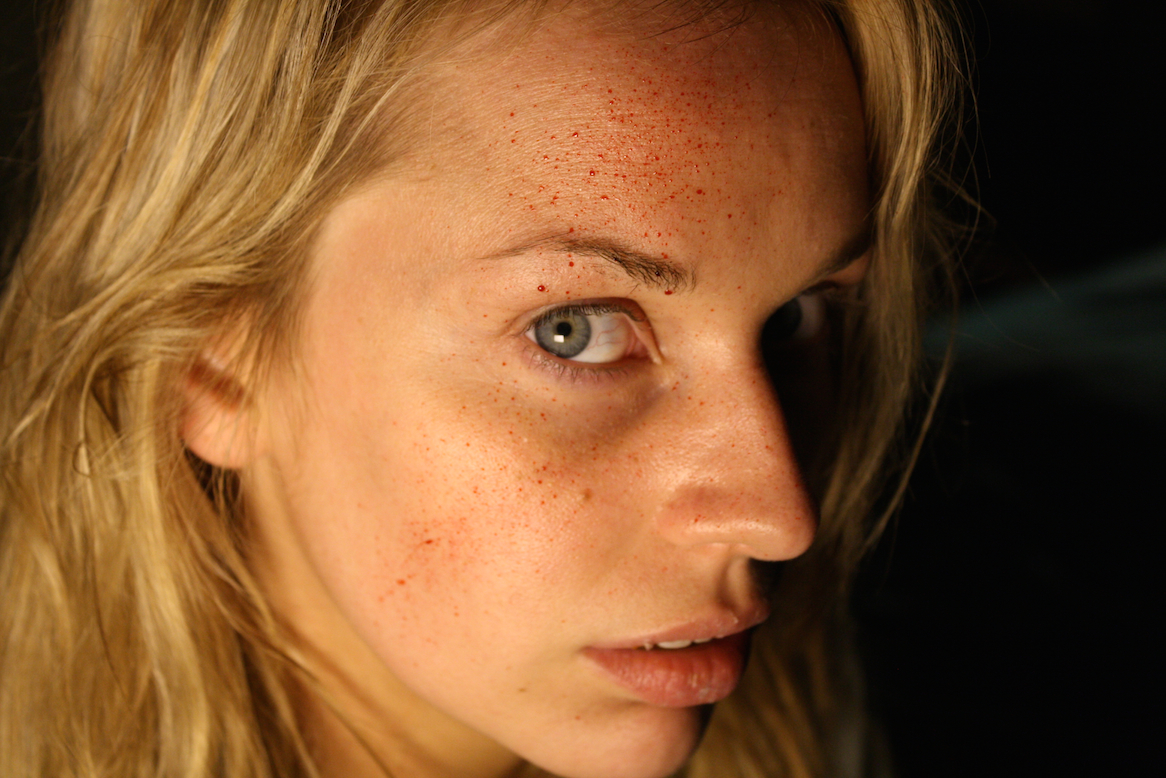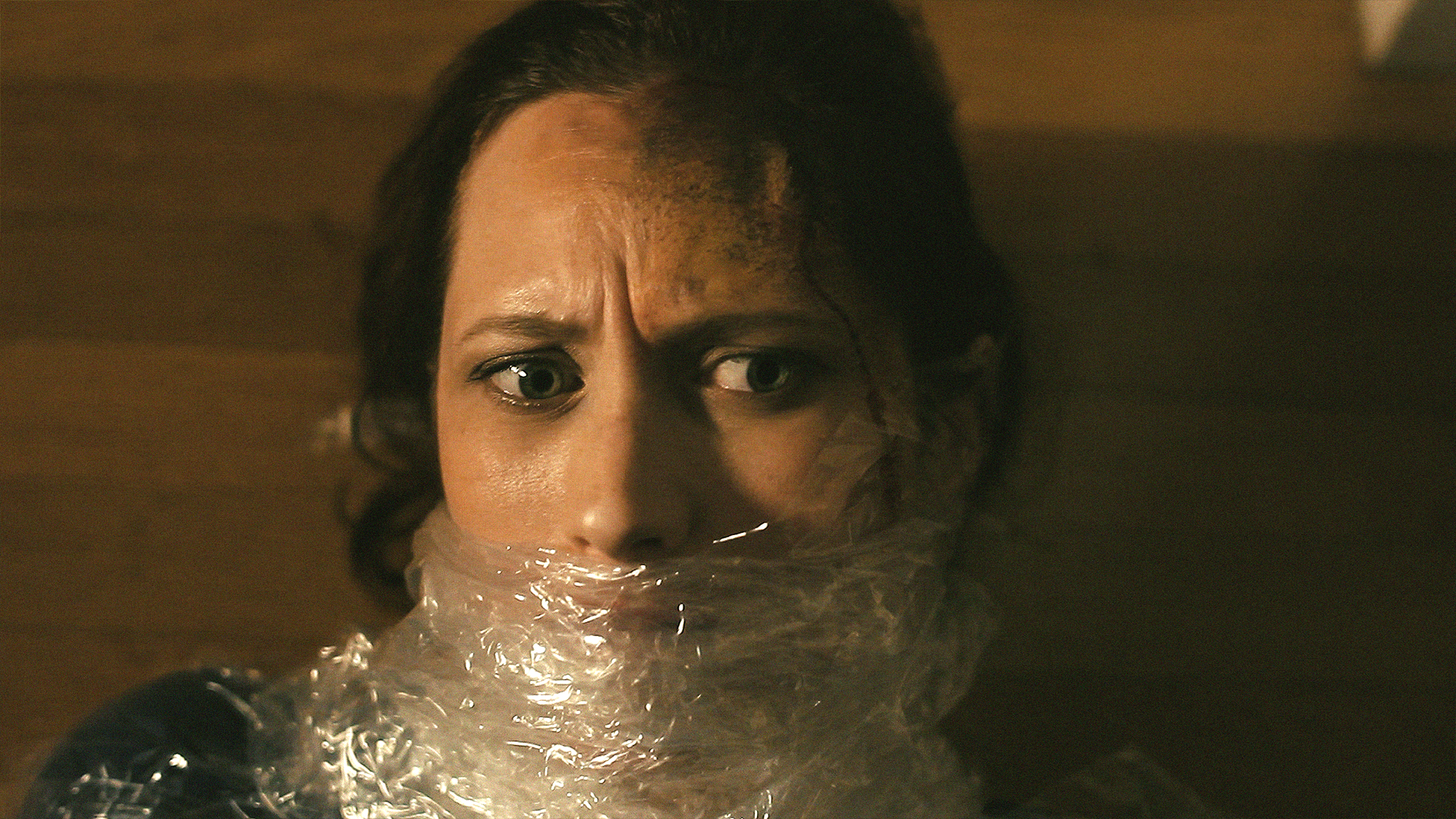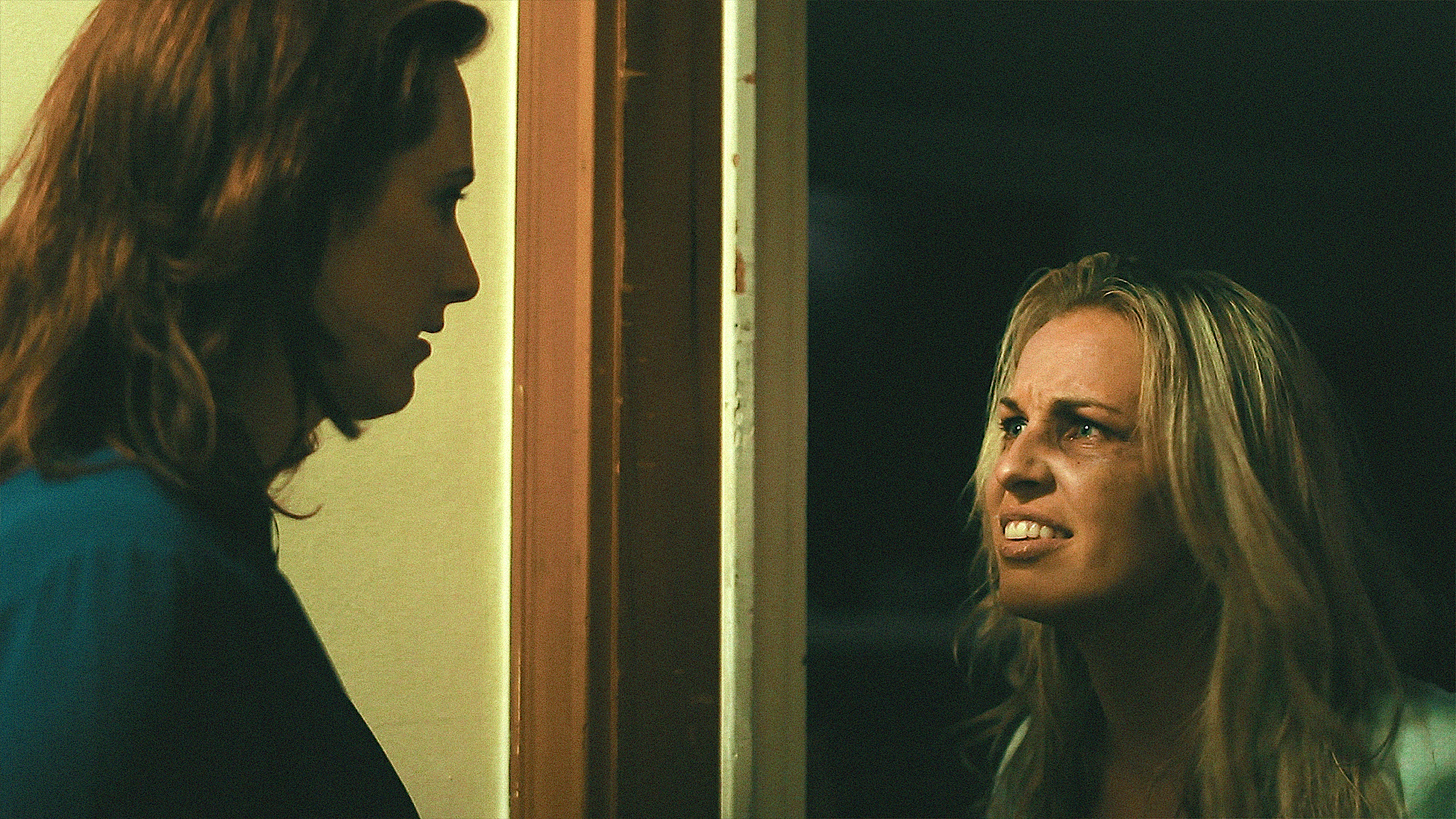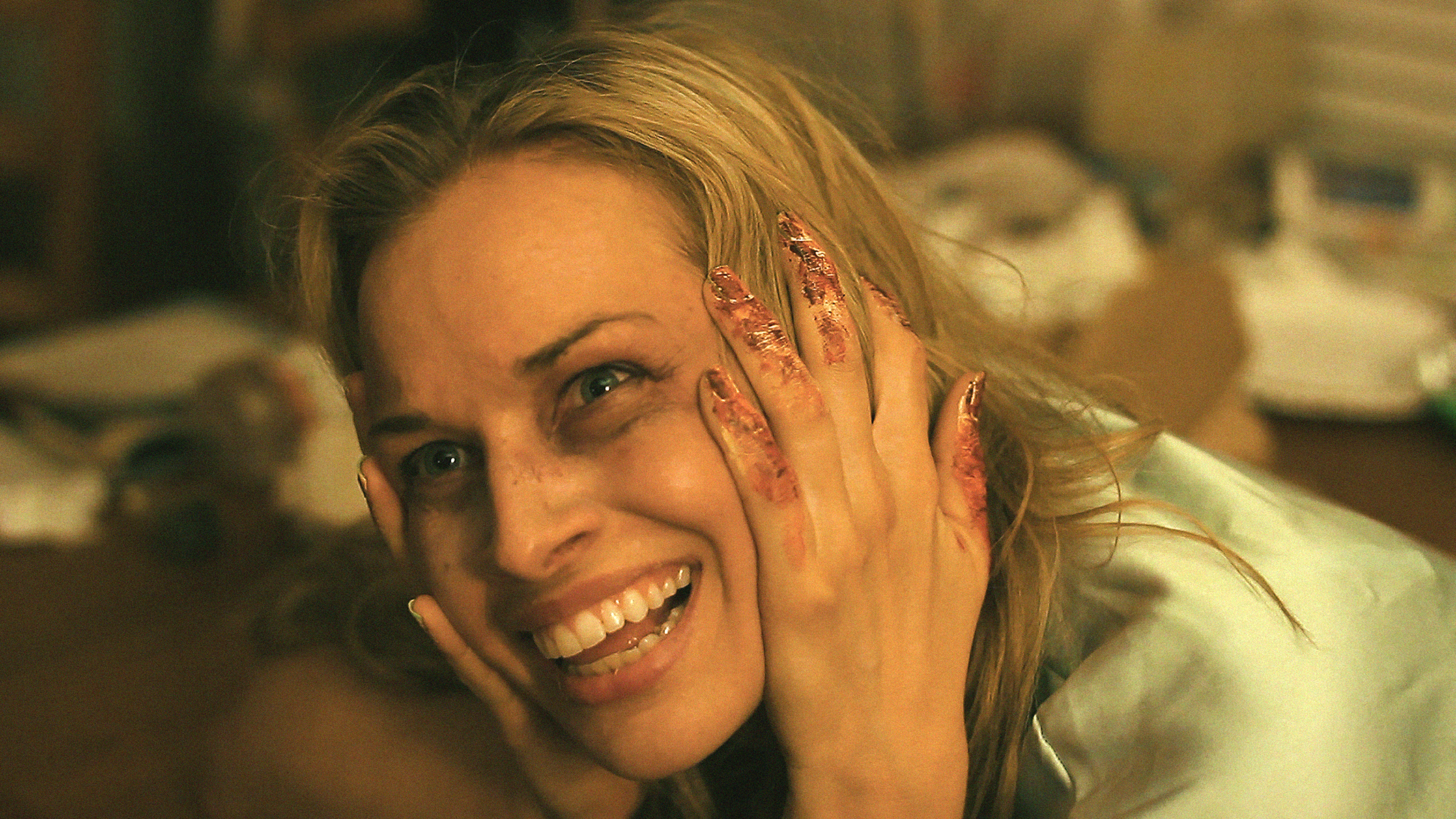Review: POSTPARTUM. So, Speaking Of Six-Minute Emotional Roller Coasters
What a delightful 6 minutes. If by delightful I mean creepy as fuck. Which I do.
When we're met at the door by a disheveled and demented blonde beauty with bloodstained hands and a batshiteatingcrazy grin, and a baby in the mix, we really shouldn't linger. But of course we do, and once past that threshold there's no getting off the emotional roller coaster, twists and turns be damned. Perhaps not unlike pregnancy itself. And like a roller coaster, not everyone gets off the pregnancy ride feeling normal.
Postpartum ramps up quickly, from ominous to outright foreboding, before hitting its stride with a bona fide 1) What-the-fuck?!?! 2) Oh shit!!! 3) Oh hell nooo! trifecta of successive moments that rather stunningly set up and wrap up our excruciating, inevitable fate. Credit must go to both actresses, who really come into their own toward the end. The suffering mother is played by Kasey Landsdale, who was new to me and is unrecognizable next to her country album cover. I found her riveting. Despite the disturbed context and her repugnant appearance, whenever she smiled her her beauty would momentarily flare, and this conflict made for a powerful expression of her psychosis. Not 2 minutes later she was just as affecting while soberly, even tenderly apologizing for murder. As far as indie-short-film acting goes, I found her noteworthy.
The short is an intense and dense ride, yet somehow Director Izzy Lee manages to fit in one more deliciously "Shelobic" twist. This final element reveals yet further layers of mystery and suggestion to the tale, and is accompanied by a haunting melody that stayed with me long after the film. Is it really coincidence that my wife found the tune reminiscent of Charlotte's Web?
Mercifully, like most roller coasters and pregnancies, Postpartum concludes with a happy ending, though just why it would was perplexing. In wondering about its purpose I found myself contemplating, for the first time, how this might be more than just freaky film fun. It's not the sort of 6 minutes one spends both watching and contemplating the thematic motivations behind its production - you're engrossed until you're released - but in its wake such questions arose. Could this actually be a serious film about postpartum mental illness? Or is it just an emotional movie ride making fantastic use of a distressingly fascinating condition?
I've come to the conclusion that it's likely both. Lee is a horror devotee, writing for Rue Morgue, Diabolique and Fangoria [and ScreenAnarchy, ed], and both of her previous two shorts - Legitimate and Picket - have received high praise from audiences who know their fear. She's making horror to horrify the shit out of you, and she is delightfully good at it (see earlier definition of delightful). However, she notes on her website bio that her film-making instincts were only galvanized in 2012, "suddenly spurred on by some ridiculous things certain ridiculous politicians said about women's bodies." Lee didn't start making horror movies just to make horrifying movies.
So I decided to do some reading up on postpartum psychosis, and in the process discovered the rather disturbing reality behind Postpartum's fiction. The affliction is so universal that twenty-seven nations, including Australia, Brazil, Canada, Germany, Greece, India, Italy, Japan, Norway, Sweden, the Philippines and Turkey (to give you a taste of the diversity), currently recognize postpartum mental illness as a mitigating factor in cases where mothers kill their children. The UK's Infanticide Act was introduced almost a century ago (1922), and treats the killing of an infant child by its mother in the early months of life as manslaughter, with imprisonment for such killings now very rare.
In the United States, however, postpartum mental illness is a surprisingly contentious issue insofar as it pertains to infant mortality. No US law recognizes a legal distinction between murder and infanticide, for reasons no doubt intimately tied up in the country's conservative attitudes towards women's reproductive health issues in general (see also Lee's first film, Legitimate). This must lead to some pretty tragic consequences considering the US has one of the highest rates of infant homicide: 8 per 100,000 = over 300 infants (< 1 year old) killed each year, about half by mothers [1, 2].
Is Postpartum actually powerful subversive commentary? I don't know, but I do know it is a hellishly fun ride, and that alone should be sufficient. I highly recommend keeping your eyes open for both it and Izzy Lee on the festival circuits, and beyond.
Full disclosure: Izzy Lee is a ScreenAnarchy contributor who goes by Michele Galgana in these parts. We have never met, but she did provide me with some great photos from the set.






Do you feel this content is inappropriate or infringes upon your rights? Click here to report it, or see our DMCA policy.










